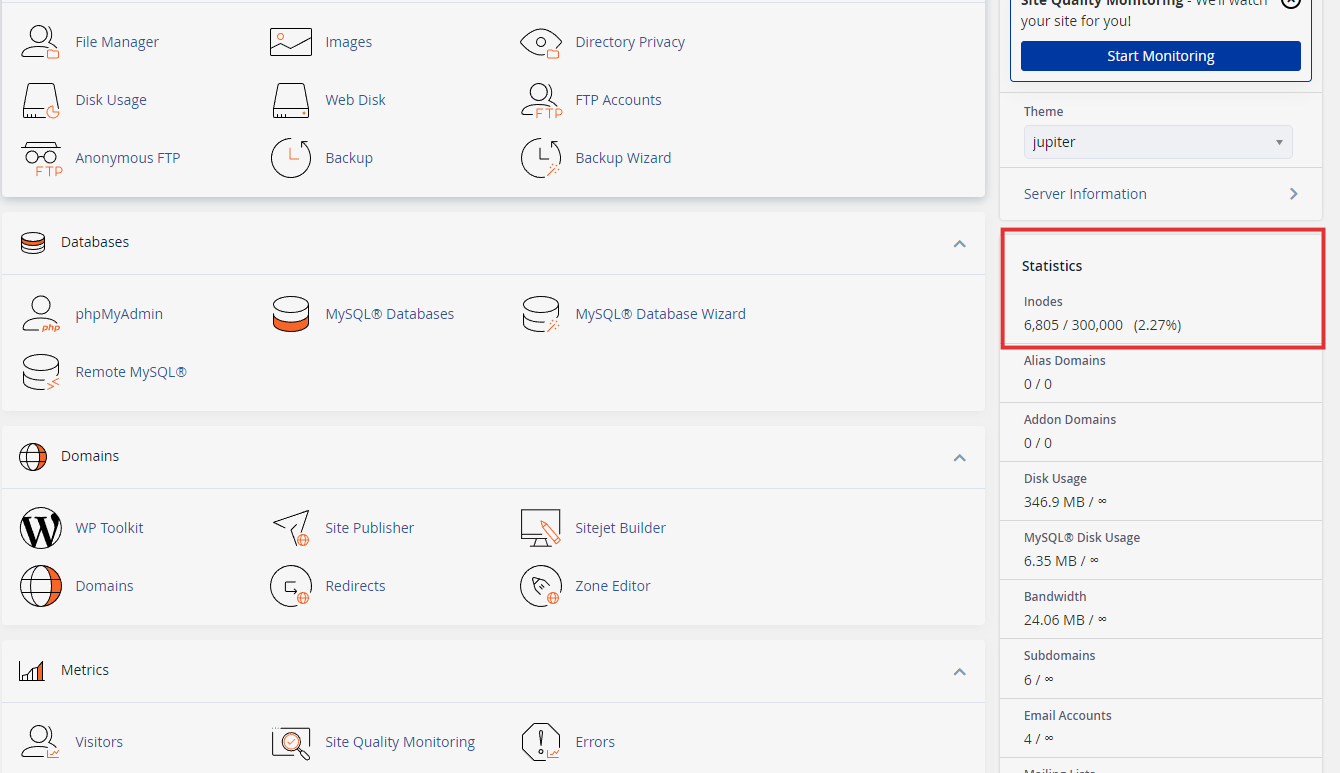
Live Chat

Domain Scan

(empty)

Login
The Impact of Inodes on Shared Hosting Performance
(08-aug-2024)

When it comes to maintaining a fast, efficient website, understanding the underlying technology is the key. One critical yet often overlooked element is the inode. In this guide, we'll explain what inodes are, how they work, their impact on shared hosting, and why managing them effectively is crucial for optimal website performance.
What is an Inode?
An inode is a data structure in a Unix-like file system that stores essential information about a file, excluding its name and actual data. Think of an inode as a detailed index card in a library, listing attributes such as:- File size
- Device ID
- User ID of the file owner
- Group ID of the file
- Access, change, and modification times
- File permissions
- Number of links to the file
How Inodes Work
Whenever you access a file, the system uses the inode to retrieve it. Creating a new file allocates a new inode, while deleting a file frees up its associated inode. Essentially, inodes are the backbone of file management, ensuring that all file operations are executed smoothly and efficiently.The Role of Inodes in Shared Hosting
In a shared hosting environment, multiple users share the same server resources. To ensure fair resource distribution and maintain server performance, hosting providers limits on inode usage. Here's how inode counts can impact you and other users:- Slower Performance of Your Website: Excessive inode usage can slow down website performance because managing a higher volume of file metadata can exceed the allocated server resources for the hosting package.
- Impact on Other Users: High inode usage by one user can affect the performance of other server processes, leading to slower load times and increased latency.
- Time Consuming Processes: A large number of inodes can slow down server processes, such as backups creating and restoring and other server operations, impacting overall efficiency.
Why Managing Inodes is Crucial
Understanding and managing inodes effectively can significantly enhance your website's performance. Here's why fewer inodes can make a big difference:- Faster Access: With fewer inodes, the server can locate and open files more quickly, improving response times.
- Improved Overall Performance: Efficient inode management leads to smoother server operations, benefiting all users on the shared server.
- Easier Maintenance: Lower inode counts simplify file management, making it easier to keep your website organized and running efficiently.
Best Practices for Managing Inodes
To maintain optimal performance, it's essential to keep your inode count in check. Here are some practical tips:- Regular Clean-Up: Periodically delete old, unnecessary files, logs, and emails to reduce inode usage.
- Efficient Data Storage: Use databases for storing data instead of creating numerous small files.
- Monitor inode Usage: Utilize cPanel tools to track and manage your inode usage effectively.
- Log in to your cPanel account.
- Look for the 'Statistics' section on the right-hand side of the dashboard.
- Find the 'File Usage' or 'Inode Usage' entry. This displays the current number of inodes used and the maximum allowed.

Conclusion
By understanding the importance of inodes and implementing effective management practices, you can ensure that your website runs smoothly and efficiently. This not only benefits your website but also helps maintain a balanced and high-performing shared hosting environment for all users. At Register.lk, we are committed to helping you optimize your website's performance. For more tips and resources on managing your hosting account, visit our blog regularly.If you have any questions or need further assistance, feel free to contact our support team.
 Written by: Register.lk Support Hero - Kesaru
Written by: Register.lk Support Hero - Kesaru







